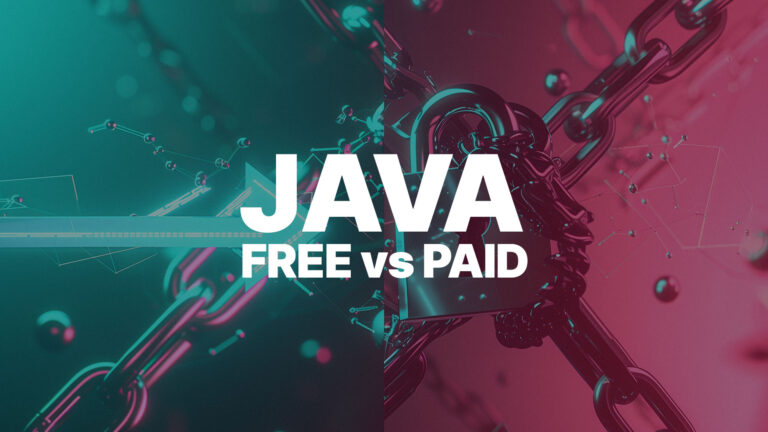Let’s discuss how, when, and where to apply Oracle’s cloud policy for licensing software in public cloud environments. Now if you are feeling confused, don’t feel bad. The misleading messages are coming from all sides – people who have read the document and think they know what it means, so-called license expert consultants, and even Oracle themselves. Let me offer you five easy facts you can apply today to your cloud strategy (since I am not an attorney, you really should review anything related to licensing with your own legal counsel):
Fact #1: If you are using AWS RDS – License Included (LI) for Oracle database standard edition, Oracle’s cloud licensing policy does not apply to you!
There are claims out there that when Amazon offers a 16 vCPU Oracle SE 2 License Included instance, that they and you are violating the rules of Oracle’s cloud licensing policy that limits SE 2 to 8 vCPU. This is an incorrect claim. The cloud policy is a non-contractual document that applies only if you choose to use it. The only time an Oracle customer should choose to rely on this non-contractual document is if they have their own licenses that need to be applied to vCPU in Azure or AWS EC2 or RDS instead of the contractually permitted physical processors where the software is “installed and/or running.” Thus, the cloud policy only applies for bringing your own license (BYOL).
Fact #2: Your use of RDS-LI is governed solely by the AWS Service Terms, and not the cloud policy, or any license agreement you may or may not have with Oracle.
Section 10.3.1 of the AWS Service Terms defines the terms and conditions that apply to your usage of AWS RDS – License Included for Oracle software. You do not have to be a previous Oracle customer with a valid license agreement for these terms to apply. That means that none of the terms and conditions in any Oracle license agreement apply to your use of RDS – LI.
Fact #3: If you BYOL for Oracle in RDS, your license agreement still applies, and those licenses must have active current Software Update & License Support (SULS).
In Section 10.3.2 of the AWS Service Terms regarding BYOL for RDS, it states (emphasis added) “You must have a valid license with ‘Software Update License & Support’ for the Oracle Software you wish to run. The terms of your existing license and support agreement(s) with Oracle continue to apply to your use of the Oracle Software; and You must follow Oracle’s current policies for licensing Oracle Database software in the cloud computing environment. The database instances using the Oracle Software with Amazon RDS reside in the Amazon EC2 environment.”
There are three important points in that service definition:
- For your already purchased Oracle licenses that you bring to apply to AWS RDS instances, you must have active support. If you have terminated support on all your Oracle licenses of a particular product, and potentially using a third-party support vendor, you may not apply those licenses to an RDS instance.
- The terms of your existing license agreement (whatever they are) also apply to those licenses in RDS (BYOL only).
- The conditions contained in Oracle’s cloud policy document also apply to these BYOL licenses. This is especially important in counting how many licenses are required for particular RDS instance types.
Fact #4: If you are being audited by Oracle under the terms of your license agreement, this does not cover your RDS License Included instances.
Since the RDS-LI usage is governed solely by Section 10.3.1 of the AWS Service Terms, the typical Audit Clause included in every other Oracle contract does not apply. You do not have an agreement with Oracle, but rather your agreement is with AWS. The only somewhat applicable statement made in this section states, “Notwithstanding anything to the contrary elsewhere in the Agreement, Oracle is an intended third party beneficiary of the Agreement, but solely with respect to this Section 10.3.1 of these Service Terms.”
This statement in the Service Terms does not make Oracle a party to the agreement you have with AWS. It only indicates that Oracle is benefiting from the money that you pay AWS for the RDS-LI service. If Oracle wants to audit your use of RDS-LI instances, that audit must come through AWS, and not directly from Oracle. If you have other Oracle licenses that you purchased and are using outside of RDS-LI, and Oracle invokes a software audit under the terms of your license agreement, then these RDS-LI instances would not be included in the scope of that audit.
If Oracle GLAS, Global License Advisory Services, (formerly known as LMS) bugs you about RDS-LI instances in an audit, you can tell them that those do not apply, and that they will need to go through AWS for more information. We have seen a lot of activity lately where salespeople are bugging organizations about RDS-LI. In this case, you need to carefully and privately evaluate anything that they say, but they have no contractual recourse except to go through AWS for a breach of the Service Terms. Let us know if you want our help pushing back on Oracle.
Fact #5: Even in a managed solution like RDS, it is still possible to enable enterprise features and get out of compliance.
With Oracle’s software, they have built-in landmines that are very risky, namely the enterprise database options and packs. Most of them are enabled by default, and even in standard edition you can easily invoke enterprise features. If you are having AWS manage your standard edition instances for you, it is still possible for your DBAs to do things that would enable an enterprise feature. This is why it is important if you are in the cloud to use a license compliance monitoring solution like the OpsCompass License Manager (OLM). We will closely monitor your database feature usage and alert on non-compliant events.
The RDS solutions from AWS, whether License Included, or bring your own license, are a fantastic value to consider for your database needs. Don’t be misled by the confusing statements flying around out there. At OpsCompass and House of Brick, we have helped thousands of organizations and defended our clients in hundreds of audits. Let us know if we can help you too.








